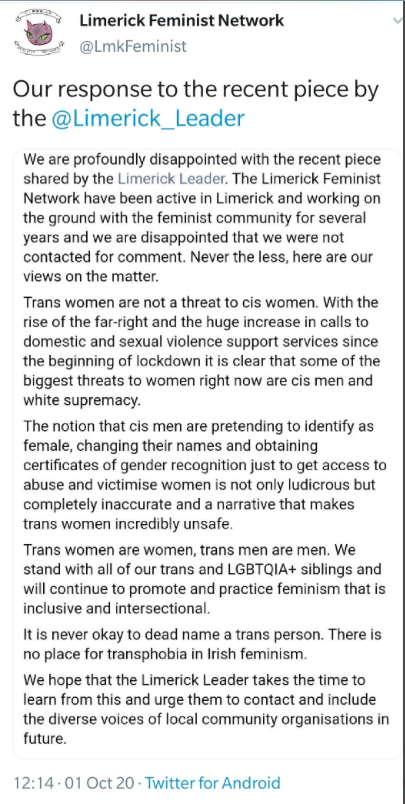A solicitor has been fined £17,500 by the Solicitors Disciplinary Tribunal after being convicted of sexual assault.
Concerns continue to mount about the impact on victims of lengthy delays to trials. These problems, already in existence last year, have been exacerbated by Covid. “Justice delayed is justice denied.”
Naz Shah MP has received an apology and compensation after the Leave.EU group falsely accused her of being a grooming gang apologist. Leave.EU have accepted that the allegation was libellous and that she is a ‘vociferous campaigner for victims of grooming gangs.’
In global news, the UN Secretary General has called for an investigation after more than 50 women have come forward with reports of sexual exploitation and abuse by workers at the WHO and leading NGOs.
Spearmint Rhino have closed their doors in Sheffield, bringing to an end the third judicial review taken on Public Sector Equality Duty grounds against Sheffield. This was not the only litigation surrounding the Rhino: the club, arguably using dancers as a shield, had attempted to prevent the organisation Not Buying It from disclosing evidence of their licence breaches despite NBI’s undertaking never to disclose the identities of the dancers. Spearmint Rhino withdrew the claim and agreed to pay NBI’s costs soon before closing down. Not Buying It are calling on Sheffield to ensure that the women who worked there are supported to find alternative work and mental health support if necessary, since as self employed workers they would not have been eligible for furlough. You can see their campaign here.
In news on sex and gender:
This week Keira Bell’s case has been heard at the High Court. Keira is challenging the Tavistock for their issuing of hormone blockers to children aged 10-16, arguing that children do not fully understand the implications of that decision. The Tavistock argues that they do, and that the whole principle of Gillick competence stands at risk. Judgment is expected at a later date.
Ann Sinnott is issuing judicial review proceedings against EHRC and GEO in relation to their guidance on the single sex exceptions contained in Schedule 3 to the Equality Act 2010. These exceptions permit single sex or separate sex provision of services, and also allow a service provider to discriminate lawfully on the basis of gender reassignment. The EHRC and GEO’s guidance stated that it would be unlawful to discriminate on this basis against someone who had a GRC, whereas we now know that it is lawful to have a single sex provision which is restricted to one sex, irrespective of someone’s GRC status. The uncertainty over who may and may not access single sex services has been at the heart of much of the debate triggered by Stonewall’s move to abolish them altogether contained in its GRA submission. Whatever the outcome, this action should provide some much needed clarity. You can see her crowdfunder here.
The Law Society has issued a template for firms wanting to support employees who are transitioning or otherwise changing their gender expression. This describes biological sex as “stereotyped categories,” indicates that all employees should use facilities of their choice regardless of the stage of their intended transition, and that pronouns should not just be chosen at will but dispensed with altogether. It suggests phrases such as “Sam is going to get Sam’s coat” for the pronoun-free, and warns that failure to accept a gender identity amounts to transphobia. What a traditional client base would make of it remains to be seen; Legal Feminist wonders whether this will have a genuinely adverse effect on recruitment of those who are gender non-conforming for fear that they will insist on speaking like this to clients.
Stella Creasey MP and Stonewall hosted a workshop on the upcoming consultation on misogyny as a hate crime, at which attendees were invited to ask questions. WPUK founder Kiri Tunks asked “Given the Single Sex Exemptions in the Equality Act are in place to address the misogyny and sexism faced by women and girls, can Stonewall explain why they are lobbying to have them removed?” Readers might think that this is relevant to the subject matter of the workshop: why is Stonewall campaigning to remove the existing redress to misogyny in law? Kiri was removed from the meeting for asking the question, and Stella Creasy MP rather huffily replied on Twitter to the ensuing criticism that a workshop is not the appropriate forum for discussion. If a workshop on misogyny and law is not the appropriate forum for a discussion on misogyny and law, what is?
In news from Ireland, where self-ID was brought into law, a teenager has been remanded into a women’s prison after making threats to kill. The report indicates that no bail application was made and the defendant was reportedly “anxious” to be admitted to a women’s facility. Court reports link this defendant to an extremely disturbed, violent and unpredictable young person who does not have a dysphoria diagnosis (and would therefore not be eligible for a GRC in the UK, or to consequent placement in a women’s prison) and who has declared persistent intent to do serious harm targeted expressly at women. The individual had previously attacked a social worker while she was driving, ripping her eyelid, and reportedly expressed remorse only that the social worker had survived the attack. The Limerick Leader reported the case and the objections of the radical feminist organisation Radicailín. The Limerick Feminist Network were quick to condemn… the reporting:

It is astonishing that their objection was only to the “deadnaming” of the defendant, not to the placement of an individual hellbent on harm to women being placed in an already overcrowded women’s prison.


